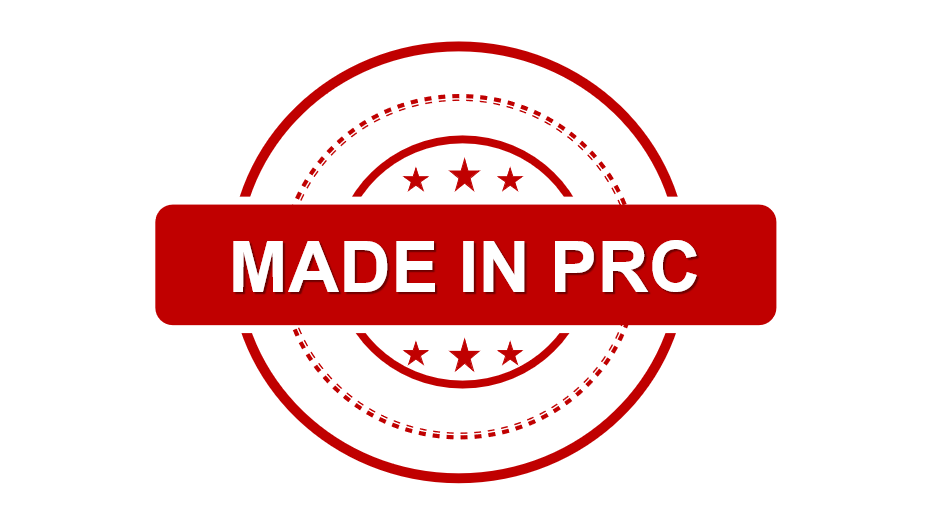

일부 새로운 수입업자 나 소비자는 처음에“PRC에서 만든”의미에 대해 확신이 없을 수도 있지만,이 용어를 이해하면“중국에서 만든”라고 말하는 또 다른 방법이라는 것이 분명해집니다. 제품은 동일한 공장 조건, 동일한 규정 및 동일한 수출 요구 사항이 적용됩니다.진정한 도전은 레이블이 아닙니다올바른 공급 업체
그리고 건물 a
공급망당신은 의존 할 수 있습니다. 마켓 유니언과 같은 현지 소싱 전문가가 등장하는 곳입니다. 수십 년의 경험으로Yiwu 도매 시장, 우리는 모든 규모의 비즈니스를 돕습니다자신있게 소스
최종 생각글로벌 무역에서 라벨은 다음과 같습니다"중국에서 만들어"단순히 동일한 원점 태그의 변형입니다. 진정으로 중요한 것은 소싱 프로세스, 함께 일하는 공급 업체 및 제품이 고객의 기대를 얼마나 잘 충족시키는 지입니다.가정 장식, 문구, 의류 또는 맞춤형 개인 레이블 제품을 수입하든, 라벨링 이해 및 올바른 지역 전문가와 파트너 관계를 맺으면 지속 가능하고 성공적인 비즈니스를 구축 할 수 있습니다.중국에서 소싱, 올바른 공급 업체를 선택하거나 관세 규칙을 탐색하는 것에 대해 궁금한 점이 있다면, 우리 팀은Market Union은 기꺼이 도와 드리겠습니다- 압력 또는 의무없이.
이러한 라벨링 관행은 2000년대 초반에 일부 제조업체가 "Made in China" 대신 "Made in PRC"를 사용하기 시작하면서 더욱 일반화되었습니다.
국제 라벨링 표준을 준수합니다
중국 제조업의 이미지를 현대화하다
“중국산”이 때때로 오해받거나 과소평가되는 글로벌 시장에 대한 호소
그래서 당신이 볼 때"중국산"제품에 대해 확신할 수 있습니다. 제조국은 다음과 같습니다.중국, 전통적인 라벨이 붙은 품목과 마찬가지입니다.
두 용어 사이에는 법적 차이가 없습니다. 국제 무역 및 관세 규정에 따라 두 용어 모두 허용됩니다. 선택은 일반적으로 다음과 같습니다.
브랜딩 전략: 일부 회사에서는 보다 중립적이거나 전문적인 톤을 위해 약어를 선호합니다.
인식 관리: 일부 지역에서는 "PRC"라는 단어가 "China"보다 정치적 의미가 덜하거나 시대에 뒤떨어진 고정관념이 덜한 것처럼 들립니다.
수출 요건: 일부 국가에서는 전체 형태의 라벨("중화인민공화국에서 제조")이 필요하지만, 다른 국가에서는 "PRC"와 같은 약어를 허용합니다.
직접 구매하는 구매자의 경우이우 또는 기타 중국 시장두 용어는 공급업체와 제조업체에서 서로 바꿔 사용합니다.
아니요. 있습니다품질에 차이가 없다라벨을 기준으로 합니다.
품질의 핵심은 다음과 같습니다.공급업체 선택,생산 감독, 그리고품질 관리 프로세스—원산지를 나타내는 표현이 아닙니다.
이것은 신뢰할 수 있는 사람과 함께 작업하는 곳입니다.이우 소싱 에이전트중요해집니다. 이우와 같은 시장에서 소싱할 때 전문 에이전트는 다음과 같은 도움을 드립니다.
생산 실적이 좋은 신뢰할 수 있는 공장을 찾아보세요
명확한 품질 기준을 설정하고 생산을 모니터링합니다.
배송 전 제품을 검사하세요
포장 및 라벨링이 세관 및 소매 요구 사항을 충족하는지 확인하세요.
~에마켓 유니온우리는 두 가지 라벨 형식을 모두 사용하는 글로벌 브랜드와 협력하여 이들이 국제적인 품질 기준을 충족하는 검증된 제조업체에서 제품을 공급받을 수 있도록 도왔습니다.
글로벌 상거래가 확대됨에 따라 더 많은 소매업체와 공급업체가 다양한 라벨링 관행에 적응하고 있습니다. 실제로 유럽과 아시아의 여러 지역에서는 "Made in PRC"가 표준으로 널리 받아들여지고 있습니다. 미국에서는 대부분의 세관 당국에서도 두 용어를 모두 인정하고 있습니다.
오늘날의 구매자와 소비자에게 정말 중요한 것은투명성, 일관성 및 규정 준수—라벨 자체뿐만이 아닙니다. 수입업체들이 점점 더 관심을 기울이는 이유도 바로 이 때문입니다.
윤리적 소싱
생산 추적성
품질 인증(ISO, CE, FDA 등)
지속 가능한 포장 및 노동 관행
이우나 다른 중국 시장에서 제품을 공급받는 경우, 상자에 국가 이름이 어떻게 표시되는지보다 이러한 요소가 더 중요할 것입니다.
귀하의 상품에 표시가 되어 있는지 여부"중국산"또는“중국산”진정한 확신은 소싱 프로세스를 어떻게 관리하느냐에 달려 있습니다. 몇 가지 팁을 알려드리겠습니다.
평판이 좋은이우 구매대행Market Union과 마찬가지로 공장 방문부터 공급업체 심사까지 현장 수준의 지원을 제공할 수 있습니다.
대량 생산에 앞서, 소재, 구조, 전반적인 제품 무결성을 평가하기 위해 샘플을 요청하세요.
배송 전에 배치를 확인하여 예상치 못한 상황을 방지하세요. 이렇게 하면 위험을 최소화하고 고객 만족도를 높일 수 있습니다.
해당 국가의 수입법에 따라 라벨은 특정 형식을 따라야 합니다. 현지중국의 소싱 에이전트귀사의 포장이 규정을 준수하고 전문적으로 처리되도록 보장해 드립니다.
"중국산"또는
이메일 형식 오류
emailCannotEmpty
emailDoesExist
pwdLetterLimtTip
inconsistentPwd
pwdLetterLimtTip
inconsistentPwd